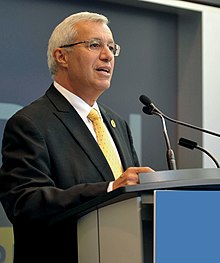
Making it Easier for Businesses to Find Skilled Workers
Regional Immigration Pilot to Fill Labour Gaps, Attract Top Talent in Rural Ontario
The Voice of Canada News

The Ontario Government is helping businesses in small and rural communities attract and retain skilled workers through a new Regional Immigration Pilot program. Chatham-Kent, Cornwall and Belleville/Quinte West were selected to participate in an effort to fulfill labour needs that are not currently being met locally.
The Regional Immigration Pilot — which is part of the Ontario Immigrant Nominee Program (OINP) — will be an opportunity for businesses in the three communities to fill talent gaps and support economic growth and a pathway for skilled foreign workers to become permanent residents.
In a recent letter, Vic Fedeli, Minister of Economic Development, Job Creation and Trade also called on the federal government to work in collaboration to further develop Ontario’s immigration strategy and give the province more choice and autonomy over the selection of economic immigrants.

“Our government is committed to growing economic immigration and connecting job creators in small and rural communities with the talent they need to expand and succeed,” said Fedeli. “Through the Regional Immigration Pilot, businesses in Belleville/Quinte West, Chatham-Kent and Cornwall now have the ability to meet their employment requirements and create even more good jobs.”
“Belleville and Quinte West have a fantastic infrastructure and capacity to welcome newcomers and help them get settled,” said Todd Smith, Minister of Children, Community and Social Services and MPP Bay of Quinte. “Through the Regional Immigration Pilot, we will help alleviate skilled labour challenges in the region, so our job creators can continue to grow their businesses and boost our local economy.”
While developing the pilot, the government gathered feedback from stakeholders in a number of small and rural communities across the province. Communities were chosen based on their specific skilled labour challenges, the ability to help newcomers get settled and interest from community stakeholders. Additionally, Cornwall’s Francophone business needs were also taken into consideration. Outcomes from the pilot will help inform further efforts to regionalize economic immigration in Ontario.
“The Regional Immigration Pilot will help lay the foundation for a strong economy that will benefit both newcomers and job creators,” said Fedeli. “We are creating a streamlined and cost-effective open for business climate that will help companies invest, innovate and grow across the province.”
QUICK FACTS
The OINP will allocate approximately 150 nominations for the pilot through the OINP Employer Job Offer category.
The OINP’s Employer Job Offer Category allows Ontario businesses to fill labour needs in professional, managerial and in-demand occupations with foreign workers and international students to fill their labour gaps.
Recruited workers must have a job offer and may apply from within or outside of Canada.
The government will also be adding new manufacturing National Occupational Classification (NOC) codes to the In-Demand Skills Stream, which will take effect in the 2020 nomination year.
Immigration is a shared jurisdiction in Canada between the federal government and the provinces and territories. Ontario has the largest nominee program in the country with an allocation of 6,650 in 2019, plus an additional 250 nominations specifically for National Occupational Classification level C jobs that usually require high school and/or job-specific training.
Ontario asked the federal government for an increase to its nomination allocation in 2019 and expects to begin discussions for 2020 nomination allocation soon to ensure Ontario can meet the demand for the program.
For more information on other changes introduced this year, visit Ontario’s Regulatory Registry.



